The COVID-19 pandemic has affected the sleep of people worldwide. We know that levels of self-reported insomnia have risen and that people are reporting poor sleep quality.
The pandemic has been, and continues to be, a source of stress and anxiety for many of us and our sleep is often the first thing to suffer under these circumstances. Whether you’ve personally had COVID-19 or not, it’s highly likely that your sleep has been affected by the pandemic in some way.
Since early on in the outbreak, we’ve seen an explosion of scientific studies highlighting the adverse effects that this virus has had on sleep quality in the general public, in those infected with COVID-19, in people in lockdown, working from home, working in hospital settings and everything in between.1 2 3
What we’re now starting to see is a more novel aspect of COVID-19 where, in some people, the infection can have long-term health implications. This has been dubbed long COVID4 5 6 and we’re beginning to understand more about how this post-infection stage can also significantly affect sleep quality.
As of June 2021, 1.5% of the UK population were reported to be living with the long-term effects of COVID-19 infection.7 In a survey of nearly a million people with self-reported long COVID, the most common symptom, in 56% of respondents, was fatigue.
In this article, we’re going to look at why COVID-19 can affect sleep long after infection and what you can do to help get your sleep back on track as part of your recovery from long COVID.
If you have a problem with your sleep, whether it’s related to COVID-19 or not, we provide a scientifically backed solution and may be able to help.
Start with us today and our sleep coaches will find the root cause of your issue, provide a plan to sleep better again and offer support throughout the process.
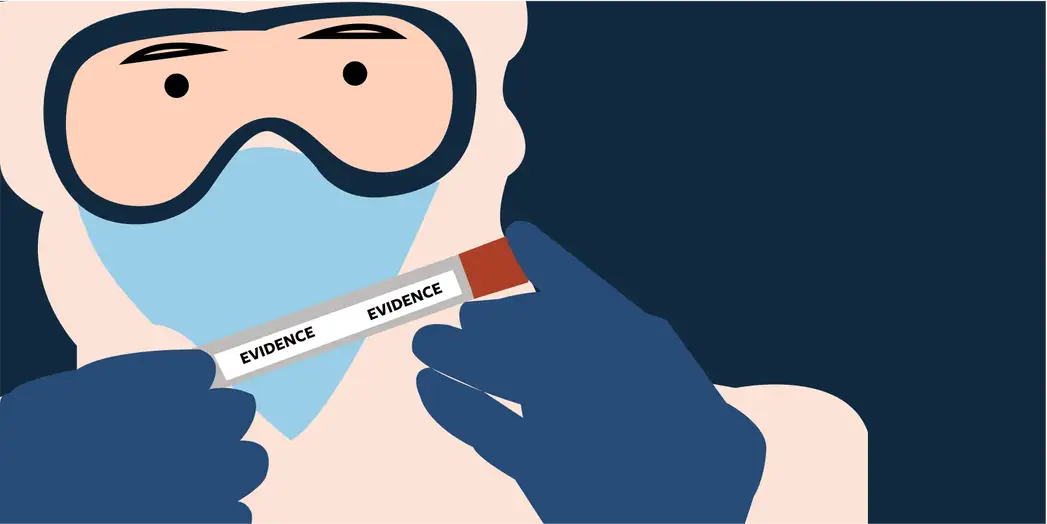
What is long COVID?
While there’s currently no agreed clinical definition, those displaying long COVID symptoms have been described as:
People with more severe infections [who] might experience long-term damage not just in their lungs but in their heart, immune system, brain and elsewhere.4
Some have used the term ‘long COVID’ when symptoms persist beyond three weeks8, but in the UK, it’s agreed that this term is:
Commonly used to describe signs and symptoms that continue or develop after acute COVID-19. It includes both ongoing symptomatic COVID-19 (from 4 to 12 weeks) and post-COVID-19 syndrome (12 weeks or more).9
In 2020, the Office of National Statistics (ONS) released data that showed that after testing positive for COVID-19:
- 20% or people were still experiencing symptoms five or more weeks later
- 10% of people were still experiencing symptoms 12 or more weeks later.10
THE ONS has more recently published figures from June of 2021 which suggest that 40% of survey respondents with self-reported long COVID-19 were still experiencing symptoms one year after infection.7
While it’s still too early to know a lot about long COVID, we know from other pandemics (such as SARS) and other viral infections (such as the flu) that it’s not uncommon for people to experience a persistence of long-term symptoms.
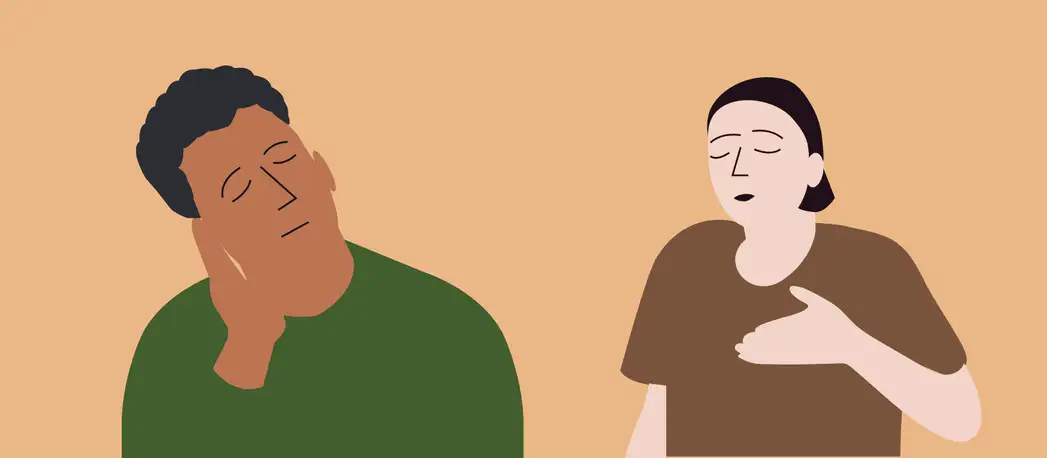
The symptoms of long COVID
Most people with COVID-19 will recover and their health will return to how it was pre-infection within a few weeks after infection. For those with long COVID, symptoms persist and can include:
- shortness of breath, chest pain or tightness, heart palpitations, dizziness
- headaches, problems with memory and concentration (“brain fog”)
- depression, anxiety, extreme tiredness (fatigue) and difficulty sleeping (insomnia)
- tinnitus, earaches, pins and needles and joint pain
- feeling sick, diarrhoea, stomach aches, loss of appetite
- a high temperature, cough, sore throat, changes to sense of smell/taste, rashes.11
Symptoms can be constant or can come and go in waves. What’s clear is that all of these symptoms could interfere with your sleep.
Studies of sleep in people with long COVID are already being published showing a drastic reduction in sleep quantity and quality.12 13 14 15
In addition, the symptoms of long COVID can cause a dramatic decrease in the quality of life.16 17
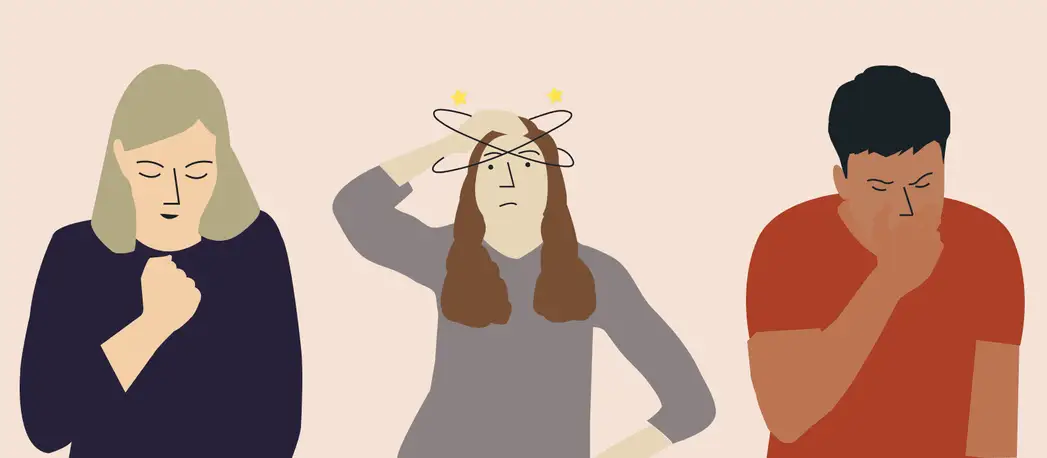
There are clear links between long COVID and insomnia
The first study exclusively looking at people with long COVID showed that they had a significantly higher rate of insomnia than subjects who never had COVID-19. The survey also showed that higher levels of pain and discomfort, anxiety or depression were observed in people with long COVID than in those who were never infected.18
In another study, a thorough review of the published literature, somewhere between 21.7-53% of people with long COVID complain of sleep disorders or insomnia.19
So why is COVID-19 infection leading to increased rates of insomnia? It’s not clear cut but it appears to be down to several reasons:
- the physical symptoms of long COVID can disturb sleep
- mental health symptoms, such as depression, anxiety and stress can interfere with sleep
- residual inflammation throughout the body may have a role to play.
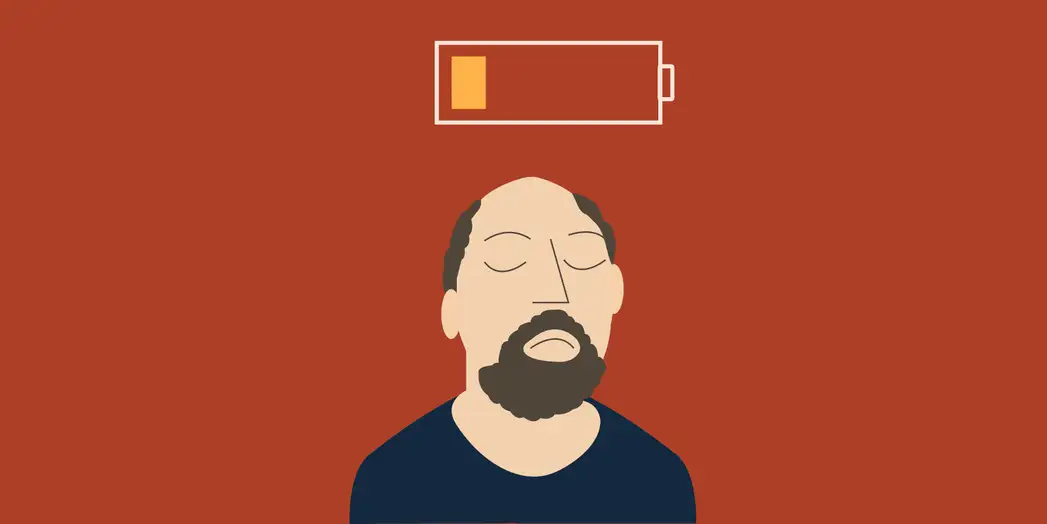
The COVID-19 pandemic has greatly affected mental health
Whether it be due to lockdowns, social distancing, job insecurities or anything in between, we know that the COVID-19 pandemic has had a huge effect on people’s mental health.20
We know that people who have been infected with SARS-CoV-2 report increased mental health problems, with significant levels of post traumatic stress seen in people who have been treated in intensive care.21
For people experiencing long COVID, similar effects on mental health are found and we know that there are reports of PTSD in people with long COVID.22
It can feel frustrating when you just can’t seem to shake an illness, and with long COVID, this frustration can lead to stress, anxiety and depression.
It’s important to note that there is a close bi-directional relationship between poor sleep and mental health. Poor sleep can make feelings of depression, anxiety and stress feel worse and good sleep can help to improve them.
As depression and anxiety are well-reported symptoms of long COVID, these can have a knock-on effect on your sleep.
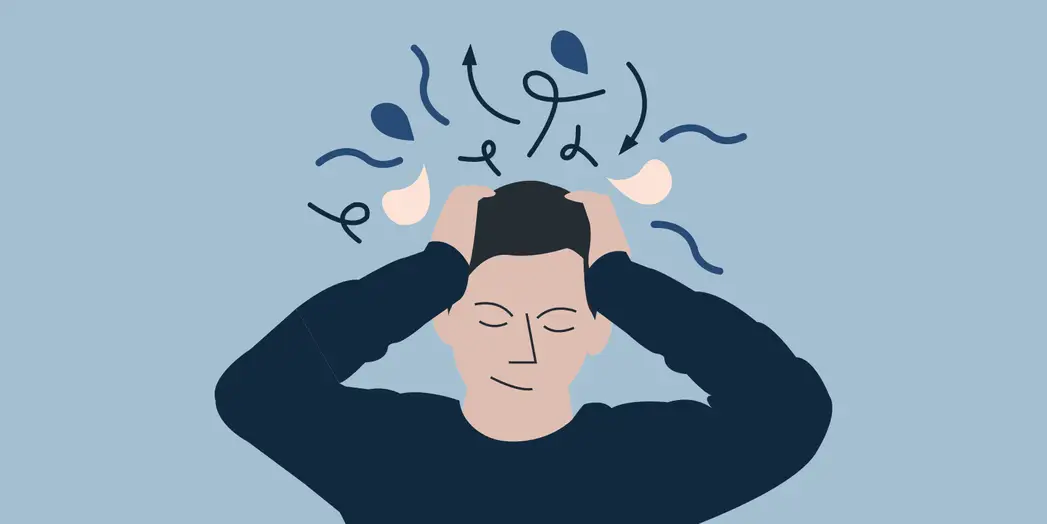
Some people develop a fear of falling asleep during the early stages of their infection, because they worry that they’ll not be able to breathe. This fear can persist during long COVID and can lead to persistent problems with sleep.
Others wake in the night breathless due to their symptoms and can’t return to sleep either because the shock of not being able to breathe leaves them too alert to sleep or because they worry the same will happen if they fall asleep again.
It’s important to understand that these feelings are totally normal. There’s small changes you can make to help you to relax and wind-down ready for sleep and simple techniques to help you calm your thoughts and get back to sleep when you wake in the night.
Taking care of your sleep goes hand in hand with taking care of your mental health, so if you feel like your sleep is suffering as a result of long COVID, then it’s worth taking steps to improve it. Take our short questionnaire to see how Sleepstation could help you.
Long COVID related inflammation and sleep
We tend to think of COVID-19 as an infection of the respiratory system, but in reality the virus can affect all of the systems in the body. What we know from studies of people who have received intensive care treatment is that the infection can infect organs across the body, including the nervous system.22 23
It also appears that the virus works by impairing the body’s immune responses, which can ultimately lead to massive inflammation around the body.
There’s some speculation that the fatigue common in long COVID is caused by the body’s efforts to recover from the inflammation caused during the active stages of COVID-19 infection.
But how does this relate to sleep? We know that inflammation and sleep both affect each other.
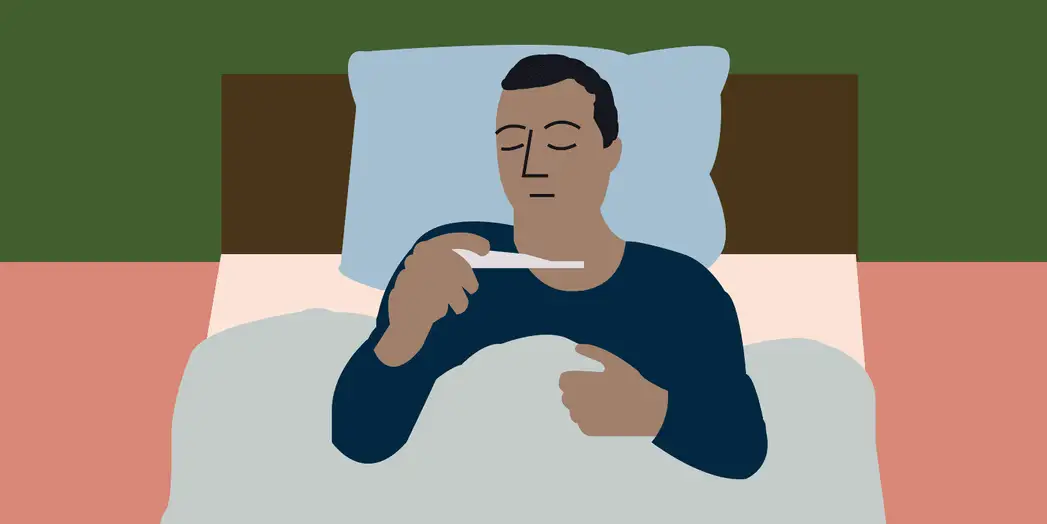
When you’re ill, your immune system’s response to an infection can have a profound effect on your sleep. Likewise, getting adequate, good quality sleep is crucial for your immune system to work at its best and can strengthen your immune system.
In long COVID, if the immune system is still not functioning normally, the body will be constantly trying its hardest to reduce the inflammation. This could explain why so many people with long COVID report fatigue as a major symptom.
It’s also thought that inflammation can come and go during long COVID, which would mean that the body is constantly having to work to keep everything in balance.
When your body is having to deal with chronic inflammation, your sleep can also be affected. Sleep can be reduced and sleep quality can be compromised. This is thought to be why levels of insomnia are so high in people who have had COVID-19.
So if poor sleep causes inflammation and inflammation leads to poor sleep, it can feel like a hopeless situation. Thankfully, there are things that you can do to optimise your sleep while you recover from long COVID.
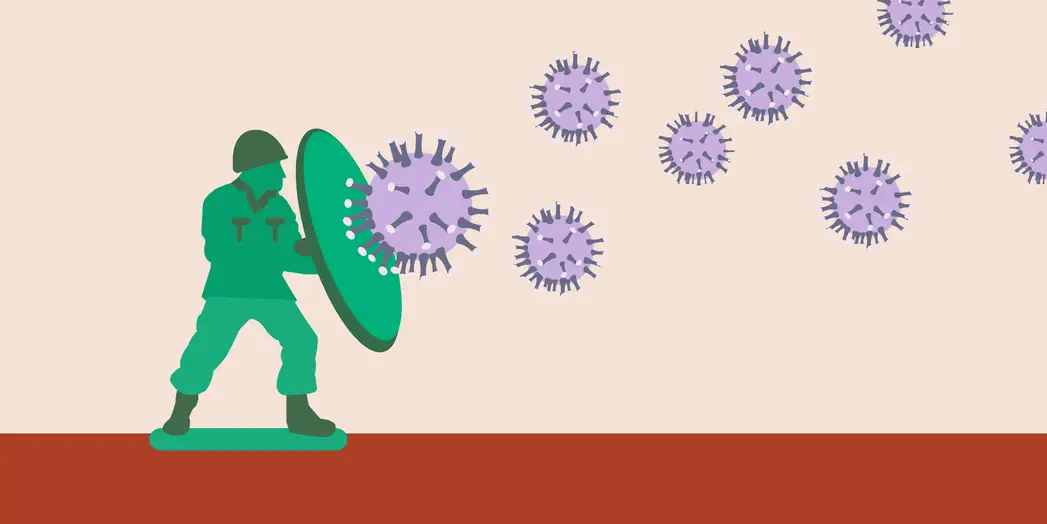
What can I do to help my recovery?
A good piece of advice is not to try and rush your recovery. Whatever the symptoms and reasons behind your particular experience of long COVID, the best approach is to be kind to yourself.
Acknowledge that the recovery will take as long as it needs and try not to stress about the when and how you’ll be back to your pre-COVID health.
If your long COVID symptoms are causing you mental or physical concern then speak to your GP. The NHS outlined treatment guidelines for long COVID as early as October 2020, and additional resources have been put in place to help with your recovery, so don’t hesitate to seek help.
In most countries, long COVID is being monitored in the population and studies are ongoing looking at how best to continue to help and support those affected. The NHS has also set up a website to support recovery from COVID-19, which is full of help and advice.
Prioritise getting good sleep
Long COVID is a relatively newly defined disorder so it’s difficult to know how the condition progresses and to pinpoint the appropriate and effective treatments for the numerous symptoms that people are experiencing.
However, given the link between poor sleep and many of the symptoms described in long COVID people, it’s clear that sleep improvement could improve some of these symptoms and so improve quality of life.
In this pandemic world, where we seem to have lost a lot of control over our lives, liberty and health, one thing remains that we can control: our sleep.
Getting enough sleep is crucial to any recovery. As we’ve discussed above, sleep can improve your mental health, helps you recover from illness in general and reduces inflammation within the body.
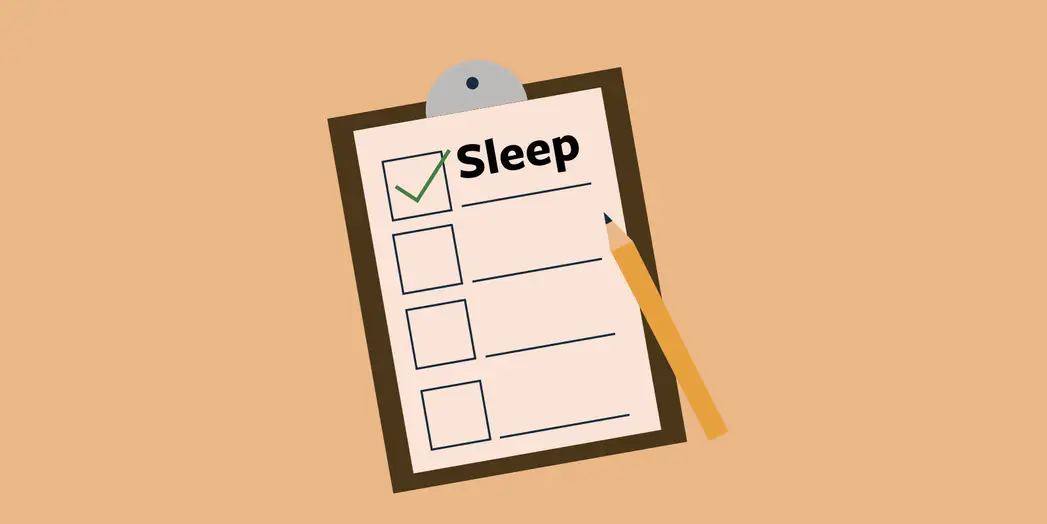
First, consider whether you’re giving yourself ample opportunity to sleep. Are you sitting up watching TV or playing on your phone till the early hours? You might want to consider what time you’re going to bed and whether you need to give yourself more opportunity to sleep.
Think about your sleep space: is your bedroom set-up just right for good sleep? Is there anything you could do to make it a better place to get a good night’s sleep. We have a wealth of articles that you can explore to better understand how to get the best out of your sleep.
We know that the COVID-19 pandemic has had a huge impact on the sleep of people around the globe, and for those with long COVID, this is especially true. If you think that you’re doing the best you can but long COVID is still affecting your sleep, then you may have insomnia and we can help.
Our online sleep service has helped tens of thousands of people to overcome their insomnia, across 43 countries worldwide and we’re dedicated to providing a personalised service to help you overcome your sleep problem.
Register now and you’ll be assigned a sleep coach who will develop your sleep plan and guide you on your way back to better sleep.
Summary
- There’s an increasing body of evidence demonstrating the existence of and impact of so-called long COVID.
- The many effects of long COVID can impact upon the quality and quantity of your sleep and your overall quality of life.
- Across the world, management protocols are in place to help doctors recognise and provide support for people experiencing long COVID symptoms.
- Don’t hesitate to contact your healthcare provider to discuss how to manage your long COVID symptoms.
- Improved sleep could lessen the effects of several long COVID symptoms.
- If you’re struggling with your sleep, Sleepstation can provide you with an actionable plan and the support you need to get back to sleeping well.
References
- Targa ADS, Benítez ID, Moncusí-Moix A, Arguimbau M, de Batlle J, Dalmases M, et al. Decrease in sleep quality during COVID-19 outbreak. Sleep Breath 2021;25:1055–61. ↩︎
- Pinto J, van Zeller M, Amorim P, Pimentel A, Dantas P, Eusébio E, et al. Sleep quality in times of Covid-19 pandemic. Sleep Med 2020;74:81–5.
↩︎ - Kocevska D, Blanken TF, Van Someren EJW, Rösler L. Sleep quality during the COVID-19 pandemic: not one size fits all. Sleep Med 2020;76:86–8. ↩︎
- Marshall M. The lasting misery of coronavirus long-haulers. Nature 2020;585:339–41. ↩︎
- Perego E, Callard F, Stras L, Melville-Jóhannesson B, Pope R, Alwan NA. Why the Patient-Made Term “Long Covid” is needed. Wellcome Open Res 2020;5:224. ↩︎
- Oronsky B, Larson C, Hammond TC, Oronsky A, Kesari S, Lybeck M, et al. A review of persistent post-COVID syndrome (PPCS). Clin Rev Allergy Immunol 2021.
↩︎ - Pawelek DAA. Prevalence of ongoing symptoms following coronavirus (COVID-19) infection in the UK – Office for National Statistics. GovUk 2021. Available here. (accessed October 29, 2021). ↩︎
- Garg P, Arora U, Kumar A, Wig N. The “post-COVID” syndrome: How deep is the damage? J Med Virol 2021;93:673–4.
↩︎ - COVID-19 rapid guideline: managing the long-term effects of COVID-19. 2020. Available here.(accessed 27 Sep, 2022). ↩︎
- The prevalence of long COVID symptoms and COVID-19 complications [Internet]. Gov.uk. [cited 2021 Aug 3]. Available here. ↩︎
- NHS website. Long-term effects of coronavirus (long COVID) [Internet]. Nhs.uk. [cited 2021 Aug 3]. Available here.
↩︎ - Carfì A, Bernabei R, Landi F, Gemelli Against COVID-19 Post-Acute Care Study Group. Persistent symptoms in patients after acute COVID-19. JAMA 2020;324:603–5.
↩︎ - Stanton R, To QG, Khalesi S, Williams SL, Alley SJ, Thwaite TL, et al. Depression, anxiety and stress during COVID-19: Associations with changes in physical activity, sleep, tobacco and alcohol use in Australian adults. Int J Environ Res Public Health 2020;17:4065. ↩︎
- Huang C, Huang L, Wang Y, Li X, Ren L, Gu X, et al. 6-month consequences of COVID-19 in patients discharged from hospital: a cohort study. Lancet 2021;397:220–32.
↩︎ - Islam MS, Ferdous MZ, Islam US, Mosaddek ASM, Potenza MN, Pardhan S. Treatment, persistent symptoms, and depression in people infected with COVID-19 in Bangladesh. Int J Environ Res Public Health 2021;18:1453.
↩︎ - Taboada M, Moreno E, Cariñena A, Rey T, Pita-Romero R, Leal S, et al. Quality of life, functional status, and persistent symptoms after intensive care of COVID-19 patients. Br J Anaesth 2021;126:e110–3.
↩︎ - Moreno-Pérez O, Merino E, Leon-Ramirez JM, Andres M, Ramos JM, Arenas-Jiménez J, Asensio S, Sanchez R, Ruiz-Torregrosa P, Galan I, Scholz A. Post-acute COVID-19 syndrome. Incidence and risk factors: A Mediterranean cohort study. Journal of Infection. 2021 Mar 1;82(3):378-83.
↩︎ - Orrù G, Bertelloni D, Diolaiuti F, Mucci F, Di Giuseppe M, Biella M, et al. Long-COVID syndrome? A study on the persistence of neurological, psychological and physiological symptoms. Healthcare (Basel) 2021;9:575. ↩︎
- Cabrera Martimbianco AL, Pacheco RL, Bagattini ÂM, Riera R. Frequency, signs and symptoms, and criteria adopted for long COVID: a systematic review. International Journal of Clinical Practice 2021. ↩︎
- Moreno-Pérez O, Merino E, Leon-Ramirez JM, Andres M, Ramos JM, Arenas-Jiménez J, Asensio S, Sanchez R, Ruiz-Torregrosa P, Galan I, Scholz A. Post-acute COVID-19 syndrome. Incidence and risk factors: A Mediterranean cohort study. Journal of Infection. 2021 Mar 1;82(3):378-83.
↩︎ - Bo H-X, Li W, Yang Y, Wang Y, Zhang Q, Cheung T, et al. Posttraumatic stress symptoms and attitude toward crisis mental health services among clinically stable patients with COVID-19 in China. Psychol Med. 2021;51(6):1052–3.
↩︎ - Raveendran AV, Jayadevan R, Sashidharan S. Long COVID: An overview. Diabetes Metab Syndr. 2021;15(3):869–75. ↩︎
- Matschke J, Lütgehetmann M, Hagel C, Sperhake JP, Schröder AS, Edler C, et al. Neuropathology of patients with COVID-19 in Germany: a post-mortem case series. Lancet Neurol. 2020;19(11):919–29. ↩︎